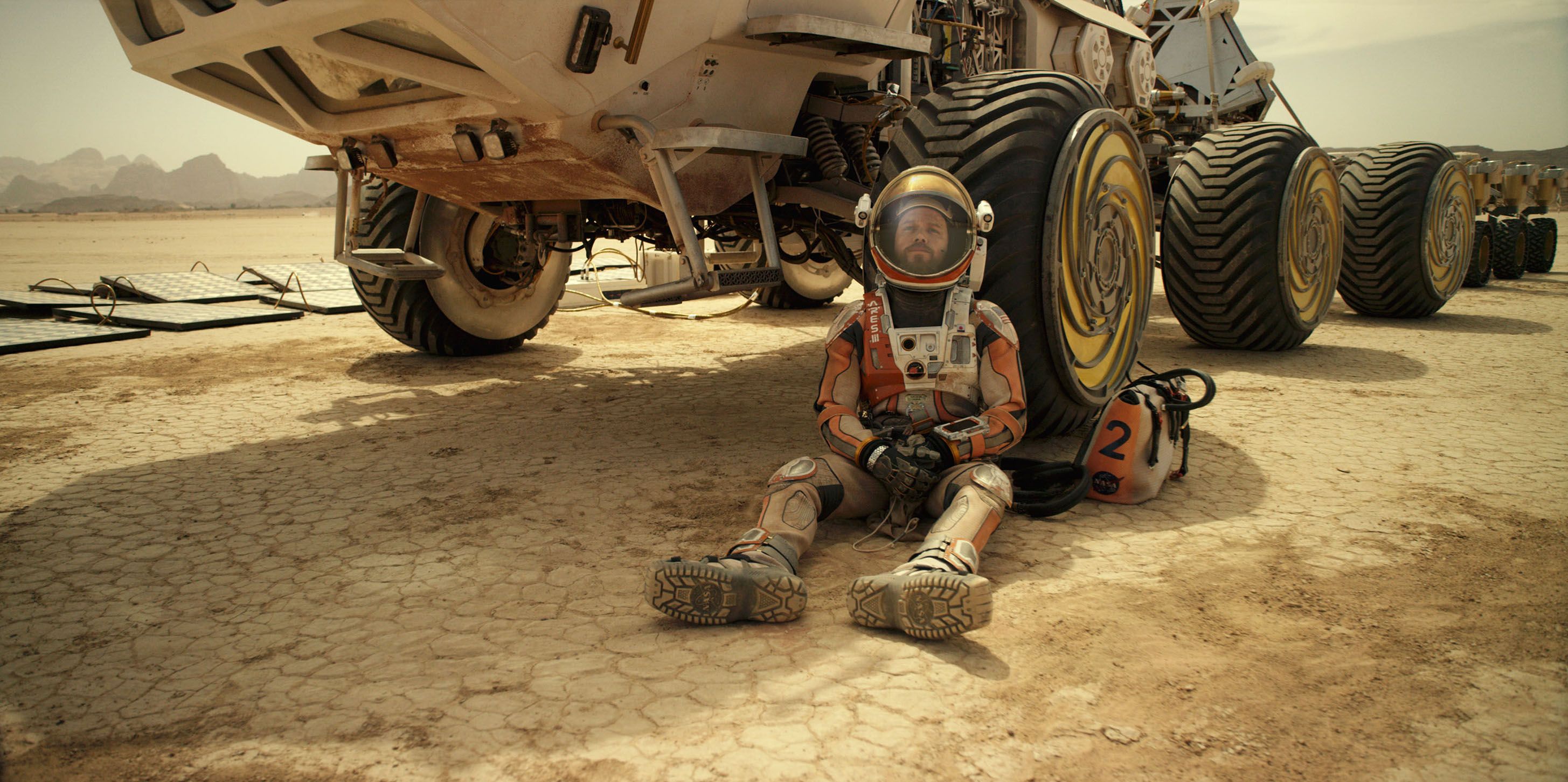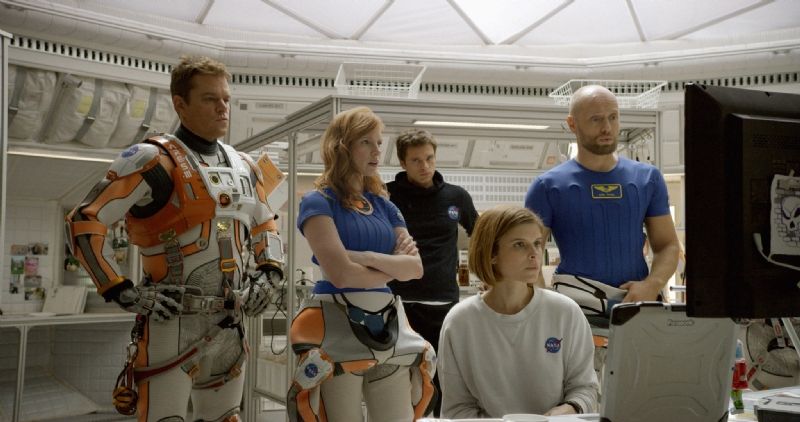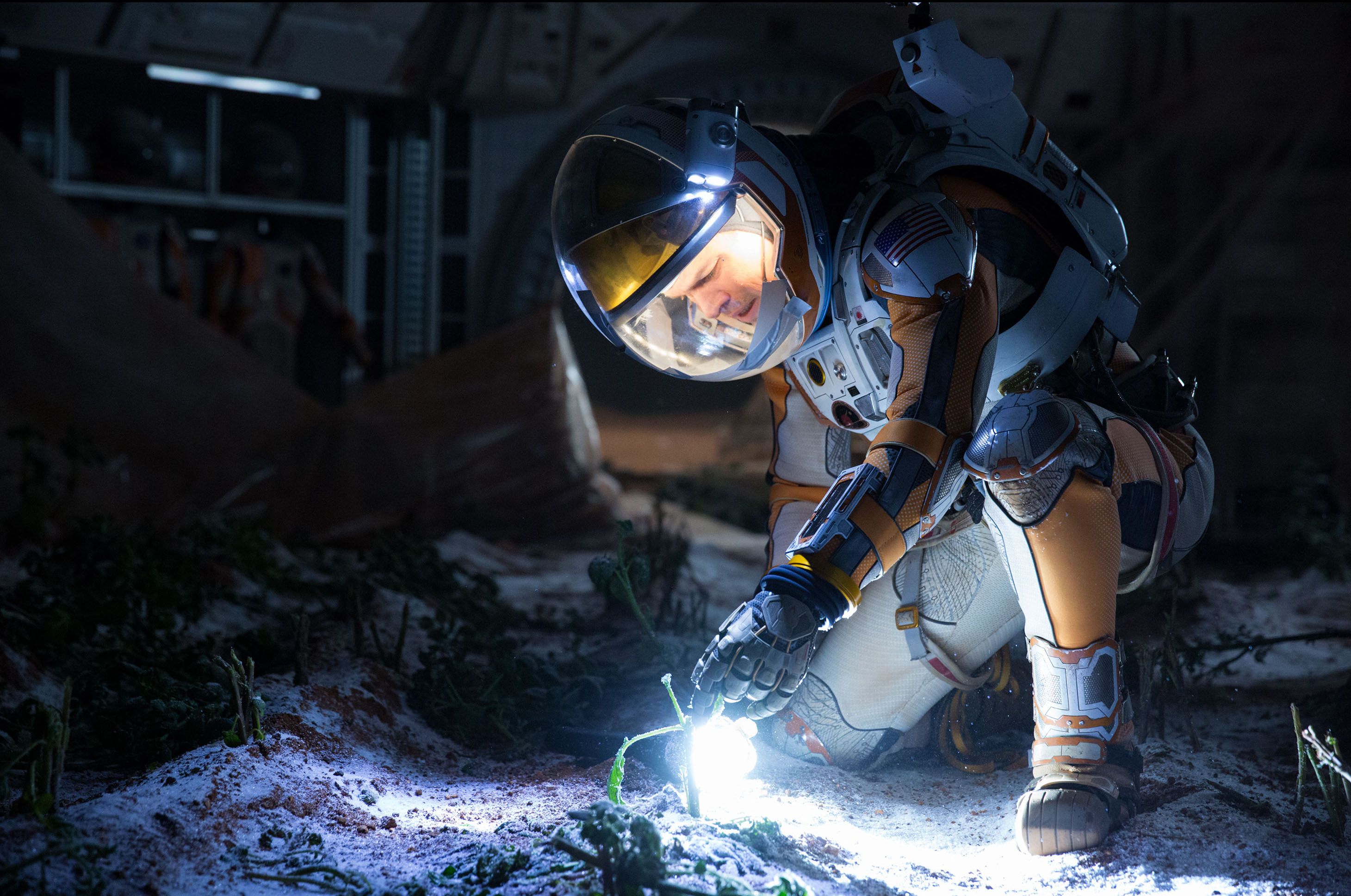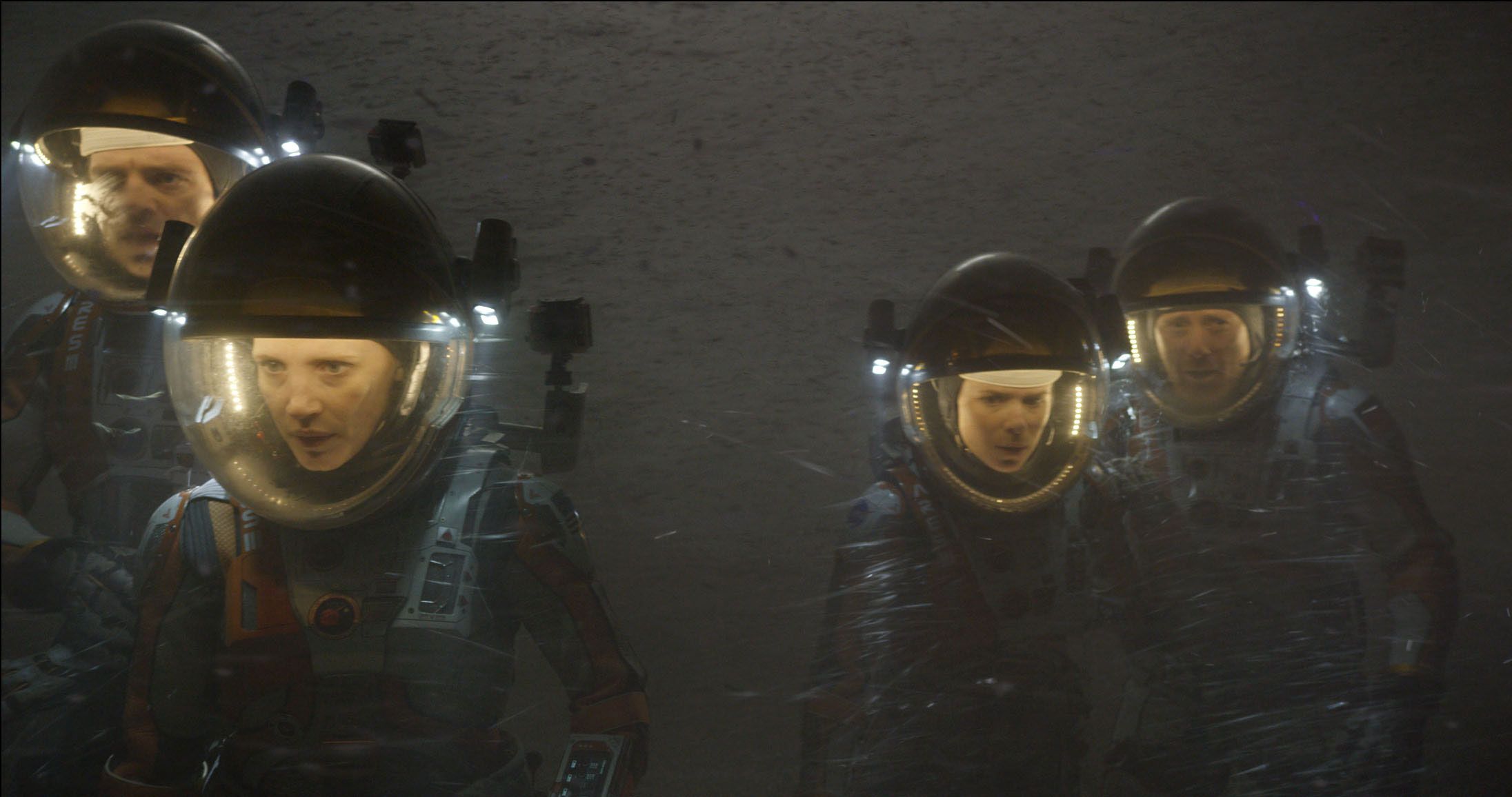Andy Weir’s self-published novel The Martian became a huge bestseller, and it was a big hit at the box office this weekend. The film also went over big with critics, and is primed to be a potential player in this year’s Oscar race. But for director Ridley Scott and screenwriter Drew Goddard to translate Weir’s book to the big screen, how much did they have to lose, and what did they choose to keep?
[Heavy spoilers ahead for both the book and the movie]
The Trajectory Remains the Same
Looking at the skeleton of the story, Goddard kept Weir’s book intact. It’s a movie where there’s plenty of subtraction, especially where Mark Watney’s various duties and missions are concerned (more on that later), but Goddard basically condensed the narrative to fit a 130-minute runtime. However, there are no radical changes. Just subtraction.
The biggest removal comes in the third act when in the book, Watney is driving to the Ares IV landing site, and because he accidentally shorted out his communications, he doesn’t know that a storm is coming to make his journey even more difficult. Goddard removes all of this. Watney never shorts out his communications array, and there’s never a dust storm to avoid on the way to Schiaparelli. It’s the smoothest sailing he encounters until he has to launch himself off the planet.
The Climax Is the Biggest Change
The movie and the book are pretty much the same when it comes to getting Watney off of Mars: he throws everything he can out of the MAV, the Hermes has to create an explosion in order to get to the right speed and altitude, etc. However, in the book, Watney’s actual rescue is fairly simple. Once the Hermes makes the proper adjustments, Watney and Beck meet up in space, Beck reels in Watney, and everyone hugs (or, as Watney points out, they would except he smells rank on account of not having showered for the last couple of years).
Scott and Goddard go for more of a flourish in their conclusion, and they put Commander Lewis front-and-center. She’s the one who ultimately pulls in Watney, and after trying to adjust to some timing issues, she’s finally able to get him. It’s not a massive change, but it helps beef up Lewis’ role, makes her more heroic, and puts the audience on the edge of their seats a little bit longer.
The Book Is about the Little Things
Ridley Scott’s The Martian is about bold, sci-fi adventure. It may have an affinity for science, but it wants to keep its focus on intense character interactions and Watney’s survival. Weir, for his part, wants to show that even the best and the brightest can’t plan for the little things that can be catastrophic to a mission.
Two of the most memorable sequences in the book are the airlock blowing out and the food probe exploding. In each one, Weir slowly weaves the narrative of how a minor detail grew and grew without anyone noticing, and when the issue finally reached the point of being mission critical, it was too late. It’s how everyone is at fault, and no one is at fault, and why contingency plans are so important. They’re the best part of the book, and yet I can understand why Goddard stripped them out because they’re not necessarily cinematic.
I suppose Scott could have kept doing ultra close-up takes of the airlock seam starting to rip or gone inside the probe to show how the cubes became gelatinous and threw off the trajectory, but that would make a long film even longer and take us away from character scenes. For Scott and Goddard, what’s important is that the airlock blows and the probe fails, and that Watney and NASA have to deal with the fallout. The “why” is what drives Weir, but not the movie.
The Book Adores Science; The Movie Adores Thrills
Reading The Martian can be a bit of a chore at times. There are long stretches where it comes off like a word problem with Watney trying to explain how he’s going to get enough water or hydrogen or complete whatever calculations are necessary to keep surviving. On the one hand, I appreciate Weir’s devotion to scientific accuracy, but word problems aren’t compelling literature, and I sense that Weir knows it since he slathers on so much humor from Watney (thankfully, the jokes work).
While the science-heavy material doesn’t make for the most engaging read (the stuff at NASA and on the Hermes with a bunch of characters interacting works much better), you can tell that Weir has a deep love of the scientific brilliance that a Mars mission requires and the ingenuity of engineers in particular. I don’t know if I learned anything from The Martian other than I will never be an astronaut because astronauts basically have to be geniuses, and so does anyone who wants to work in space travel. There’s a reason “rocket science” is synonymous with brilliance.
The movie, on the other hand, glosses over the science. It doesn’t ignore it completely, but whereas Weir wants to know why things go wrong, Scott wants to patch it up with duct tape and keep rushing forward. I’ve spoken to multiple people who say that The Martian is a movie that will make kids want to join NASA, and I guess that might be the case, but it’s a science film that doesn’t really want much to do with the specifics of science. There’s nothing wrong with that, but The Martian doesn't sell scientific rigor like Apollo 13. But to The Martian’s great credit, it doesn’t discard science entirely and the importance of calculations comes up time and again.
But when the airlock breaches or the probe explodes, the reasons why are breezed through. When Watney’s helmet cracks, the film doesn’t care about how he finds the leak or how he gets the airlock back to the hab. The story needs to keep moving, so Watney puts some duct tape on the problem spots and charges forward. The Martian is a movie about survival, and Ridley Scott excels at providing a thrill ride. The fact that he doesn’t really care about the finer points of scientific discovery isn’t a positive or negative for the film; it’s just not where the director chose to place his focus.
Closing Thoughts
Both the book and the film are a success in their own way and even though they share a narrative, it’s interesting to look at the emphasis for each. Hopefully, the book will drive people to the movie and vice-versa, because they’re both entertaining works of fiction that will have you cheering for the best botanist on Mars.






